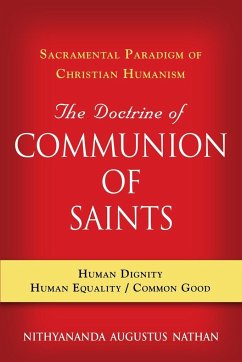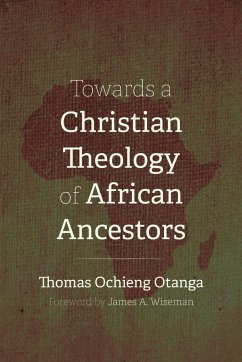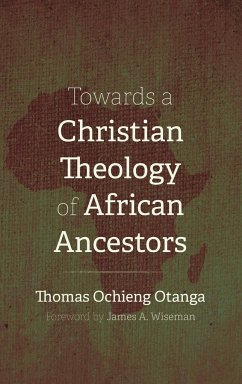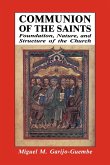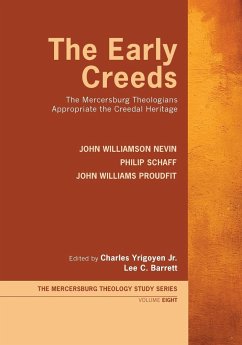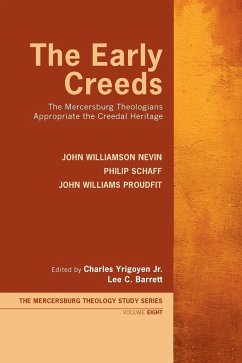This book is a treatise on the historical and theological developments of the communion of saints of the Apostles' Creed. The doctrine, which emerged in the fourth century, had come for much flak in the life of the Church. Inherent ambivalence had undermined its doctrinal authenticity far too long to leave it to faith alone to mediate its meaning, significance and scope. As an Article of Faith, intellectual integrity demands that its truth about salvation should not remain elusive or esoteric. In the nine augmented chapters Nathan resolves to identifying the factors and scope from its original Latin term "sanctorum communionem" before it was characterized as the "communion of saints" in the Apostles' Creed. It is far from the communion between the living and the Saints in heaven; careful analysis shows it is a profound affirmation of faith in the Eucharist, which makes it the centrality of Christian living. The doctrine was conceived to impart a profound theology of Christ himself so as to equip believers to become more configured to a life of Christ. The book demonstrates that the communion of saints is the template for the theology of Christian Humanism. The Eucharist, as the sacrament of all sacraments, represents the divine love - agape - which internalizes the virtues exemplified by Jesus Christ in our relations with one another as a people of God. The communion is about how Christians respond to God's self-loving love, manifested sacramentally by God's own trinitarian nature as a social being. The work reveals the social dynamics of Baptism, Eucharist and the Church as the sacramental instrumentalities of Jesus in fostering human dignity, unity, justice and common good, which characterize Christian Humanism. The communion of saints is the sacramental prototype for global, shared unity; it portrays the social doctrine of loving God and one's neighbours, which is the greatest of Jesus commandments. From a theological perspective the author therefore considers the communion of saints as the notion of the relationship between faith and modern society that should outweigh the general appeal to individualism, indifference and consumer-driven poverty in a rapidly changing global economy. Doctrinally it encompasses in its entirety the significance of the Eucharist, which restores this fellowship of a genuine community (or the koinonia) from social alienation, division, selfishness, discrimination, war and poverty following the fall of humankind through sin. The book is revelatory of how God's life is with us and in our life with each other. The author proposes to revert the significance of the doctrine to its sacramental origin so that Christian consciousness is about the urge to commitment to the holistic approach of society as members of authentic communities. This is the communion that encourages believers to imagine and accept God's nature by bringing love to one another where there is hatred, forgiveness where there is resentment and compassion where there is animosity. In this way, the author seeks refashioning the social, economic and political realms of a broken world by co-creating God's kingdom on earth as "it is in heaven" by love and peace.
Hinweis: Dieser Artikel kann nur an eine deutsche Lieferadresse ausgeliefert werden.
Hinweis: Dieser Artikel kann nur an eine deutsche Lieferadresse ausgeliefert werden.

